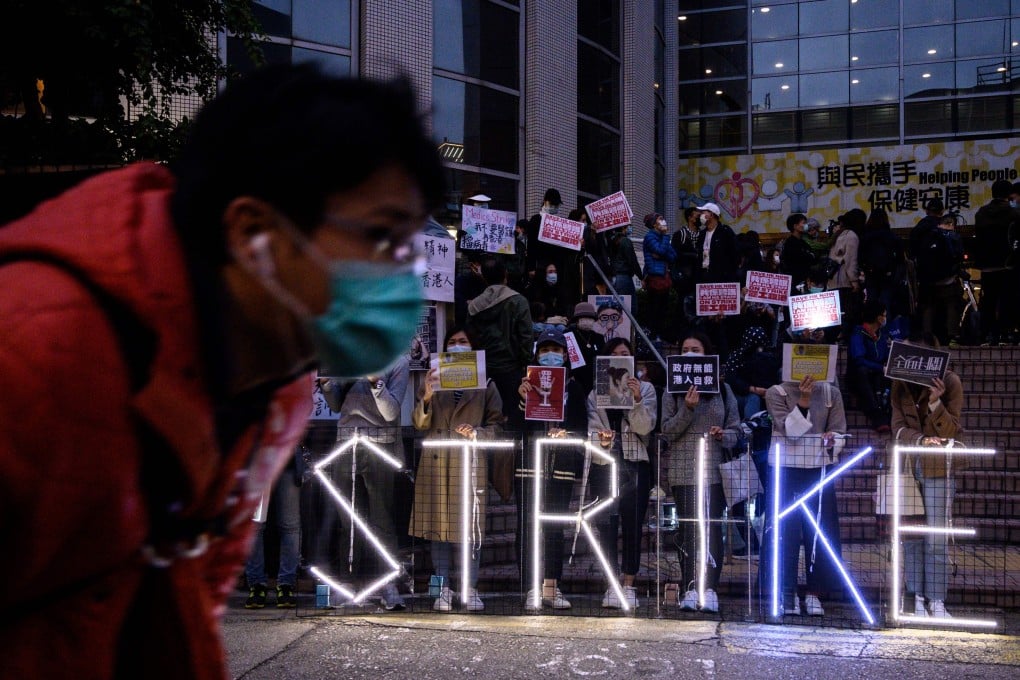Advertisement
Opinion | Coronavirus: Hong Kong’s strikes and panic are symptoms of an ailing ‘one country, two systems’
- Beijing reacted faster to the current outbreak than to Sars, which some in the outside world see as an improvement. In Hong Kong, however, many hold the view that the WHO is downplaying the deadliness of Covid-19 to appease China
Reading Time:3 minutes
Why you can trust SCMP

Hong Kong lacks both the freedom that comes with full democracy and the total control that comes with an authoritarian regime: it is neither one thing nor the other. People here are not free to choose their political leaders, yet they have the freedom to protest. The dysfunctionality of having one freedom without the other is exacerbated by governmental responses to the coronavirus outbreak, all of which underlines the unsustainability of “one country, two systems”.
During the 2003 outbreak of severe acute respiratory syndrome, Hong Kong showed a level of solidarity – both within itself and with mainland China – that is now conspicuous by its absence. There are, however, commonalities between Hong Kong in 2003 and in 2020: schools are closed; buses and trains run eerily empty; and Western expats flout the norm by not wearing masks.
But this time around, in the changed political landscape hewn by months of protests, disharmony prevails. It is hard to tell where political protests against China’s encroaching power end and where demonstrations of discontent over the Covid-19 disease begin.
Advertisement
Thousands of health workers exercised their right to protest by going on strike over the Hong Kong government’s refusal to close the border with the mainland. Staff at Hong Kong’s flagship airline, Cathay Pacific, have voted to strike over the continuation of flights to and from the mainland. And shoppers scramble for toilet rolls.

An authoritarian power like China can readily direct its factories to produce whatever it dictates, so when word spread last week that toilet paper manufacturers were shifting gear to make face masks, panic buyers cleared supermarket shelves.
Advertisement
Select Voice
Select Speed
1.00x
